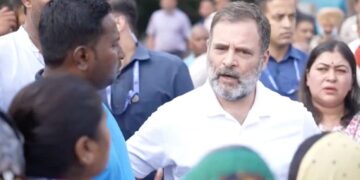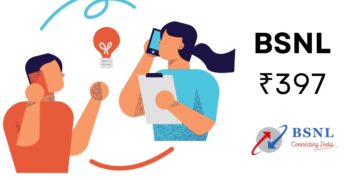As everyone knows, it is called UPSC, but very few know the long form. It is called “The Union Public Service Commission” (UPSC). This exam is widely considered India’s toughest examination, ranking as the world’s second most challenging after China’s national civil service exam. UPSC conducts all civil service examinations in India, which are divided into three stages: Prelims, Main, and Interview.
UPSC Civil Services Exam is India’s Toughest Career Path
Why Does Everyone Want to Become an IAS or IPS Officer? You’ve probably heard or seen glimpses of the life an IAS or IPS officer leads, right? It’s not just a job; it’s a secure career with immense respect. They get some pretty sweet perks too: a nice house, complete with staff like cooks, maids, and even security guards. Then there’s the official car with that distinctive blue light and a driver to take them around. Plus, they get top-notch medical care for themselves and their families. They also have a whole team working with them, and when they retire, it’s a lifetime pension and other great benefits. It’s truly a life of comfort and influence.
The Hard Truth About Getting Selected
However, here’s the part many people don’t realise. It’s almost hard to get one of these jobs. In the 2024–25 prelims, over 1.34 million candidates appeared. But only about 14,627 qualified for Mains — that’s roughly 1.09%, not even 2 out of 100.
Later, it gets even harder — the final number of selections is around 900–1000 for all services combined. That means the overall success rate from prelims to final selection is just about 0.07–0.08% — less than 1 person out of 1,000 actually makes it.
The Competition Level for IAS/IPS Posts
As a result, the number of top jobs is tiny. For example, for IAS and IPS, there are very few openings each year. There are only 180 IAS seats and 147 IPS seats across the whole country. And if you’re in the general category (not in a special reserved group), the number of seats you can even compete for is even smaller, sometimes less than 70 seats for an IAS officer. Thus, it’s become a tough fight for very few spots!
Thus, aspirants usually start preparing for the UPSC exam after they finish college. However, some exceptional talents begin even earlier. Likewise, Kota is the place for NEET-JEE coaching; Delhi is full of crowds, a hub for UPSC students. Getting UPSC coaching costs a lot of money. It’s not just for a month or a year; people spend years preparing.
The first step, the Prelims, has two required papers, both 200 marks each:
- General Studies Paper I (GS Paper I)
- General Studies Paper II (CSAT)
Here’s the tricky part: CSAT is a “qualifying” paper. This means you must score at least 66 marks out of 200 (which is 33%) in CSAT to pass. Even if you get an amazing 150 marks in GS Paper I, if you don’t get at least 66 in CSAT, you’re out! You’re disqualified.
If, by some miracle, you clear the Prelims, then the Mains exam is next. This requires really good thinking and problem-solving skills (analytical skills). And if you manage to clear the Mains, then there’s the interview.
The Emotional and Financial Toll on Aspirants
The toughest pill to swallow is this: if you make it to the interview and then don’t get selected, your dream feels shattered. But more than that, you have to start all over again from the prelims. Many aspirants like you spend 10-12 years of their lives just trying to crack the UPSC exam. Furthermore, destroying their youth and taking a heavy toll on their mental peace, they face immense societal pressure. It also leads to financial crises because they depend on their family. The constant criticism and repeated failures could hurt their confidence.
Furthermore, when aspirants focus solely on UPSC for so long, they focus the least on other useful skills. So, if they eventually give up or are unable to clear the exam, they are left with no practical skills, leading to poor job opportunities and having to adjust to any basic job they can find. While determination for UPSC is good and it certainly takes time, giving away your entire life and youth for just one exam is a big mistake. It’s crucial to know when to stop preparing for the exam, no matter how much you want it.





















































